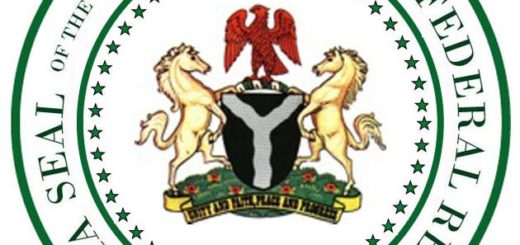The group, in a petition to the Minister of Finance, Mrs. Kemi Adeosun, signed by the Director-General, NECA, Olusegun Oshinowo, described the decision as unlawful, noting that the alleged default was based on the regulations and practice in the capital market.
In a swift reaction, SEC maintained that the commission was not in breach for sanctioning the firms on the basis of default.
But Oshinowo noted: “By virtue of Rule 19.6 of the attached Nigerian Stock Exchange (NSE), which was approved by SEC as the apex regulatory authority in the capital market in Nigeria, Q4 financial statements are not required to be filed with the regulatory authorities by companies.”
He emphasised that NSE Rule 19.6 states that “An Issuer shall announce the financial statements for each of the first three quarters of its financial year immediately after the figures are available, but in any event not more than 30 days after the relevant financial period.”
“Pages 1 and 12 of the NSE Rules are relevant to this issue. This is the reason why companies file their unaudited financial statements for the first three quarters and file audited financial statements within 90 days after the end of the year.
“It is our view that SEC should not in one regulation exclude the filing of Q4 financial statements and subsequently decide to penalise companies for not filing the same returns without any express communication to the stakeholders mandating them to file Q4 financial statements. This is because SEC cannot have two conflicting regulations in the capital market on the same issue, as it would create avoidable confusion,” he said.
However, Spokesman for SEC, Naif Abdussalam, in turn quoted that Section 60(1) of the Investment and Securities Act, 2007 requires that a public company whose securities are required to be registered under the Act shall file with the Commission on a periodic or annual basis, its audited financial statements and such other returns as may be prescribed by the Commission from time to time.
Also, he said Section 65(1) prescribes that a public company that contravenes the provision of S.60 is liable to “a penalty of not less than N1, 000,000 and a further penalty of N25,000 per day for the period the violation continues.
But Oshinowo argued that “It is not a requirement that at the end of each financial year every public company must file both un-audited financial statements and audited financial statements with regulatory authorities. As you are aware, interim results are unaudited and subject to audit adjustments for accuracy and reliability. un-audited Q4 interim results when cumulated with the earlier submitted Q1, Q2 and Q3 interim results should reflect a company’s performance for a year.
“However, when the audited results end up being different from the interim unaudited results for the full year (now requested by SEC to be filed by companies) as a result of audit adjustments, it would create a serious problem. Having two sets of financial statements from the same company for the same period, one unaudited and the other audited in circulation at the same time will have confusing and misleading effects on investors and the investing public. This would have serious adverse effect on the integrity of the company and the capital market.”
In the letter to the minister, he recalled that NECA met with the leadership of SEC on 22nd June 2016, with a view to resolving the issue, during which it presented a position Paper on the matter.
He added that this was followed with another meeting a month after and subsequently expected a feedback from the Commission.
“We were, however, surprised that SEC, rather than revert to us as promised on its position on the matter, went ahead to slam penalties on our member-companies on the same subject matter.”
Oshinowo ‘Quiet and Close Periods’, saying that “if companies are now compelled by SEC to file their Q4 unaudited results 30 days after year-end, then that would be the end of “quiet and closed periods” for insiders.”
This is because the insiders would rely on the release of the information to SEC (although not available to the public) to talk about and deal in the securities of their companies for their personal benefits ahead of the release of the audited results to the public.
“The adverse implications of the above on the capital market are better imagined, and should be avoided,” he argued.
But defending SEC’s action, Abdussalam recalled that in 2011, 2012 and 2013 public companies also communicated their respective penalty balance (for late and none submission of returns) outstanding in the record of the commission and were further encouraged to pay.
“In order to encourage companies to pay these penalties outstanding, the Board of the commission at its 74th meeting held on Thursday, December 5, 2013 considered and ratified its approval given at the 72nd Board meeting for waiver of penalty due from listed companies.”






Recent Comments